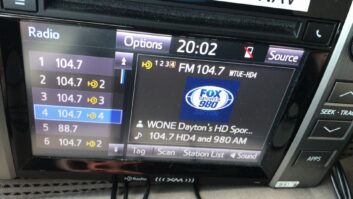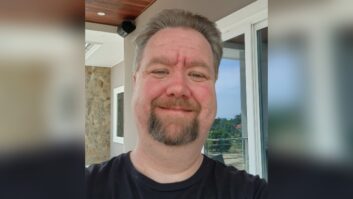
In this issue we continue our coverage of racial diversity in U.S. radio tech, focused for now on the experiences of Black engineers. We started last issue with a story featuring the experiences of three African American radio engineers. Here we sought out several broadcast companies and organizations to invite their perspectives and what, if anything, should be done about the situation.
It’s uncontentious to assert that there is a lack of Black engineers in technical positions across the U.S. radio broadcast landscape.
Radio is not unique in this regard. Its lack of diversity mirrors that of many technology-based industries. But a quick peek into any engineering session room at a major trade show makes clear how dramatic the disparity is.
“I’ve only worked with a few Black engineers through my entire career,” one corporate-level engineering professional told Radio World. It’s a common observation for many in the field.
A diverse workforce is the backbone of successful organizations in various industries, according to many business experts. So how can U.S. radio — often criticized for a lack of diversity in ownership and upper management, especially in commercial radio — better reflect the world around it by diversifying technical hiring?
Social activism during the COVID-19 pandemic has raised the issue of systemic racial inequities throughout society, and many companies in and out of radio are making public gestures toward doing better.
But for technical people, this comes at a time when the overall numbers of broadcast engineers and engineering jobs appear to be shrinking thanks to industry consolidation and retirements.
And data is scarce. The Society of Broadcast Engineers and the National Association of Broadcasters do not collect demographic information on membership. Nor do they collect data like the number of broadcast engineering jobs held by African Americans.
“SBE recruitment efforts are aimed at all within the broadcast engineering and media community, regardless of color, race or gender,” according to a statement from SBE.
But Mike Cooney, chief technology officer for Beasley Media Group, told us the broadcast industry is well positioned to attract a more diverse workforce.
“Given the incredible technological advances that continue to evolve on a daily basis within our industry, there are more opportunities than ever before. I think having engineering and technology-based training facilities and organizations dedicated to promoting diversity in the workplace are great ways to attract diverse candidates,” Cooney said.
Beasley Media Group, which has 64 radio stations in 15 markets, is committed to a diverse workplace and encourages anyone with a passion for pursuing a career in broadcast engineering to do so, Cooney said.
Recent attention to race and social justice should only spur more creative ways for the industry to achieve a more diverse workplace, he said.
Radio World reached out to several other leading radio groups. Queries to iHeartMedia and Entercom for comment were not answered. Cumulus Media “respectfully declined” to comment.
“Basic benchmarks”
The problem may not be a lack of candidates but a broken “pipeline.”
David Honig, president emeritus and senior advisor at the Multicultural Media, Telecom and Internet Council, said that issue has existed for a long time.
“For decades there have been pipeline issues impacting African-Americans in all STEM [science, technology, engineering and mathematics] career paths. African-Americans face entry barriers at every stage. High school course assignments, college counseling and lack of mentors,” Honig said, “plus out-and-out employment discrimination, both conscious and unconscious.”
Honig said a good starting point would be the development of partnerships and relationships, including internship and for-credit externships, for minority candidates.
Ernesto Aguilar, program director of the National Federation of Community Broadcasters, said radio broadcasters need to “look at themselves” when searching for solutions to improve diversity within their organizations.
“There are the obvious things, such as outdated recruitment efforts, problematic workplace culture and frankly not really trying that hard. But then there are more subtle issues. Quite a few organizations hire engineers purely as contractors with no benefits.
“In addition, contractors may not receive the investment that regular staffers do, so there can be power disparities, out-of-pocket expenses for training and issues that make these roles less desirable,” Aguilar said.
There are things Black job candidates can do, Aguilar said, that can benefit their job search and to find employment within engineering ranks.
“I’d encourage any prospective candidate of color to ask to see the diversity, equity and inclusion goals of anywhere they’re interviewing; to request a copy of the organization’s staff audit to see its hiring trends the last five years; and to talk with staffers of color.
“With that in mind, this is an opportunity for those broadcasters who are serious about diversity to have some of the basic benchmarks above,” Aguilar said.
The NFCB, which serves community radio stations within the public media system, in July released a guidebook to its members on issues of diversity. The Diversity Equity and Inclusion in Community Radio guide offers community radio stations “a simple, actionable framework to implementing training, setting up a DEI committee, doing programming audits, managing resistance to change at your station, and potential initiatives you can work on.”
Aguilar said it remains to be seen whether recent racial justice protests foster a greater practical commitment from broadcast managers and executives, mostly White, to hire and retain executives, leaders and staff across gender, race and generation.
Moving the needle
NAB Chief Diversity Officer Michelle Duke says one key obstacle facing Black applicants hoping to enter broadcast engineering is a lack of experience.
“When we have had students of color graduate from our Technology Apprenticeship Program, one issue we have faced with hiring is that many stations aren’t able to hire entry-level engineers,” Duke said, noting that it’s not a problem unique to minority candidates.
The NAB Leadership Foundation’s Technology Apprenticeship Program, a six-month program that includes a diversity component, provides hand-on training and prepares a person to take the Society of Broadcast Engineers Certified Broadcast Technologist Exam.
Addressing the lack of Black broadcast engineers begins with education, which won’t happen overnight, Duke said.
“It has to be a cohesive industry-wide effort to partner with organizations and schools that train student engineers. Building ties with organizations like the National Society of Black Engineers would give our industry more exposure to Black engineering students who are looking for their first job opportunity,” Duke said.
The next step, Duke said, is for the industry to find ways to keep potential Black engineers engaged.
“Either through hiring them or creating contract positions that these students can strive toward acquiring. We are doing our best to lay the groundwork, and we need radio stations and companies to work with us to get the best results,” she said.
“This takes time, but if the radio industry is sincerely interested in moving the needle, it can happen.”
Comment on this or any story. Email mailto:[email protected]with “Letter to the Editor” in the subject field.











